Amazon SEO vs Google SEO: Key Differences That Impact Your Rankings
Introduction to Amazon SEO and Google SEO
Search engine optimisation (SEO) is the art of enhancing visibility online, but not all search engines work the same. While Google helps users find answers, Amazon helps them find products. At The WE One, we’ve mastered both. Our insight? Treating them identically is a costly mistake.
Let’s dive into how Amazon SEO differs dramatically from Google SEO, and how your strategy should adapt for both.
The Core Purpose of Each Search Engine
Google SEO primarily serves users looking for information. Whether it’s “how to fix a leaky faucet” or “best laptops under $1000,” users often aren’t ready to buy immediately.
Amazon SEO, on the other hand, is built for buyers. If someone searches “wireless mouse” on Amazon, they’re likely seconds away from a purchase.
Understanding this distinction helps shape your keyword strategy, content tone, and user journey design.
How the Algorithms Work: A9 vs Google Search
Amazon’s A9 algorithm focuses on:
-
Sales velocity
-
Conversion rates
-
Click-through rates
-
Customer reviews
-
Fulfilment method (FBA vs FBM)
Google’s algorithm includes:
-
Relevance of content
-
Site speed and mobile usability
-
Domain authority via backlinks
-
Content freshness
While Google thrives on external validation, Amazon wants proof you sell.
Keyword Optimisation Strategies
Amazon SEO keywords must match what buyers type—think “iPhone charger fast charging” rather than just “charger.”
Use backend keywords in Amazon Seller Central to avoid keyword stuffing while still signalling relevance.
Google SEO, meanwhile, leans heavily on keyword placement within titles, meta descriptions, and header tags.
At The WE One, we recommend using Google Trends to spot rising queries and syncing that with Amazon keyword tools.
On-Page Optimisation Tactics
Amazon product listings need to be tightly optimised:
-
Titles (include brand, type, size, features)
-
Bullet points (highlight benefits)
-
Descriptions (convert shoppers)
Google webpages focus on:
-
SEO title tags
-
Header hierarchy (H1 to H6)
-
Meta descriptions
-
Schema markup
Off-Page vs On-Platform Signals
Google SEO depends heavily on backlinks, domain authority, and engagement time.
Amazon SEO is about in-platform performance:
-
High ratings
-
Fast shipping via FBA
-
Amazon SEO report data (like session-to-sale ratio)
Content Creation and Copywriting Differences
For Amazon, your copy must close the sale. Clarity, benefits, and emotional triggers win.
For Google, your content must educate, entertain, or answer. Blog posts, how-tos, and guides are key.
The WE One specialises in both tones—selling on Amazon and educating on Google.
Role of Ads in Ranking: Amazon PPC vs Google Ads
On Amazon, PPC boosts organic rankings by increasing traffic and conversions. The data tells the algorithm, “this product sells.”
On Google, ads don’t directly affect SEO but can improve brand recall, bounce rates, and backlinks indirectly.
Both need a budget, but a smart strategy makes the investment return.
Analytics and SEO Reporting
Want to know what’s working? Use:
-
Amazon SEO report tools like Helium 10 and Jungle Scout
-
Google Search Console, GA4, and Google Trends for Google SEO
The WE One offers custom dashboards for both.
SEO Tools and Resources
Free Amazon SEO tools include:
-
Helium 10’s free plan
-
SellerApp’s keyword planner
-
Amazon SEO tutorial content from The WE One blog
Google tools: Search Console, PageSpeed Insights, Google Trends
The Role of Agencies and Courses
An Amazon SEO agency can elevate your listing optimisation and PPC performance.
Invest in an Amazon SEO course to empower your in-house team—The WE One provides both services.
Best Practices for Amazon Seller Central
Use Amazon Seller Central to:
-
Enter backend keywords
-
Analyze product performance
-
Manage FBA inventory management efficiently
Pro tip: A low FBA inventory can lower your SEO rank!
Real-World SEO Tactics from The WE One
At The WE One, we blend:
-
Keyword research with purchase behaviour
-
Copywriting with conversion psychology
-
Insights from >Amazon SEO coalition partners
We’ve helped brands go from invisible to #1 ranked in weeks, not months.
Special Programs: Amazon Lightning Deals and FBA
>Amazon SEO affects your Lightning Deals eligibility. High conversion + reviews = access to promotions.
Use FBA to boost Prime eligibility and fast shipping—both key Amazon SEO factors.
Understanding the Broader Ecosystem
The Amazon CEO’s changing strategies impact A9. Keep up.
Join the >Amazon SEO coalition to stay ahead of policy changes, updates, and insights.
Final Thoughts on Dual SEO Strategy
If you’re not investing in both >Amazon and Google SEO, you’re leaving money on the table.
The WE One’s approach? Integrate them. Educate via Google. Convert on Amazon. Optimise everywhere.
FAQs
Q1. What’s the main difference between Amazon’s SEO and Google SEO?
Amazon’s SEO is sales-focused; Google’s SEO is information-focused.
Q2. Do Amazon ads improve organic SEO?
Yes. Amazon PPC can boost organic rankings via conversion data.
Q3. Are there free Amazon SEO tools?
Yes. Helium 10, SellerApp, and The WE One’s blog offer free tools and tutorials.
Q4. How does FBA inventory affect SEO?
Low FBA stock reduces visibility. Maintain inventory to keep rankings high.
Q5. Can one agency handle both Amazons and Google SEO?
Absolutely. The WE One offers end-to-end optimisation for both platforms.
Q6. Is it worth investing in an Amazons SEO course?
Yes. It gives your team the skills to manage listings, keywords, and PPC in-house.



